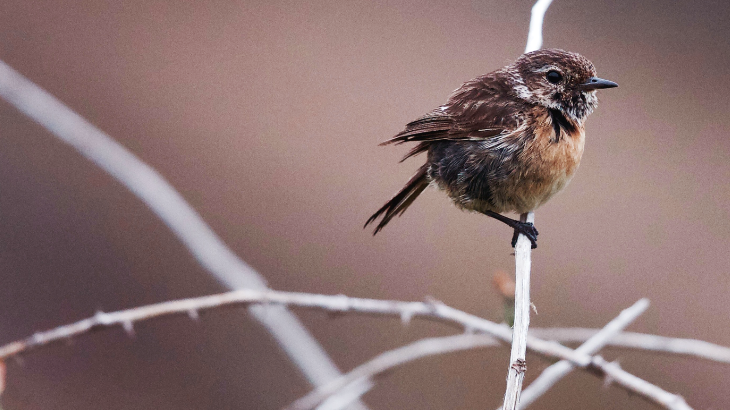popcawn - November 2023

“Climate change and biodiversity loss together pose an existential threat to human survival that warrants an urgent response from everyone” was the opening line from October’s edition of popcawn – CA-WN’s opinion on current events. In that edition we focussed on climate change and the government’s woeful climate policies, and this month we take a look at perhaps the lesser known of the twin crises, biodiversity loss, to tie in with the State of Nature report that was published at the end of September1. We may refer to them as separate crises, but climate change and biodiversity loss are actually closely linked and with that in mind I just want to briefly mention some breaking news from earlier this week.
One of the UK government’s short-sighted, ill-advised climate policies is to remain committed to sanctioning new oil and gas extraction, with just this week the news of 27 licences granted for North Sea oil and gas projects. This is despite warnings from the International Energy Agency that governments prioritising domestic fuel production risk pushing the planet over the ‘safe’ limit of 1.5 degrees of warming2. The story of these licences sat on my news app right next to the headline, ‘Scientists warn of faster threat to climate limit’ based on the conclusions of a new analysis into the carbon budget remaining before the 1.5 degrees limit is breached3. Basically, we have just 6 years of burning greenhouse gases at our current rate to have a 50% chance of limiting warming to 1.5 degrees, which translates into net zero fifteen years sooner by 2035, not 2050. Even as a lay reader, I’m not surprised by this finding, given that temperature records on land and at sea have been broken faster than predicted4. So it begs the question of why the government is gambling with our future?
Back to nature…and I’m afraid it’s more grim reading in the State of Nature report, BUT there is hope. The report is the fruit of a collaboration between over 60 conservation organisations including NGOs and research institutes. Their analysis of up to 50 years of data shows that the abundance of the UK’s species remains in decline - on average by 19% since 1970, with almost 1 in 6 and 1 in 8 species at risk of extinction in Great Britain and Northern Ireland, respectively. The distribution of habitats is also generally decreasing. However, while the findings paint a bleak picture, they do at least provide us with the scale of the problem we face. The report also acknowledges the conservation efforts that are making a difference, but that investment in such efforts is too low1. We know what to do to restore nature and the UK has an obligation to do so as a signatory to the Global Biodiversity Framework5. One of the framework’s targets is that the restoration of at least 30% of degraded ecosystems is underway by 2030; currently only 11% of UK land is protected, with less than half of that considered to be in a favourable condition1. Hopefully the government will turn this around now that it was stated last week “habitat restoration and creation, and improved connectivity of biodiversity corridors” are being prioritised…over species reintroduction at least6.
If you want to give nature a helping hand directly, there are many resources available on the State of Nature website, including links to volunteer work and how you can help wildlife in your own garden. In the meantime, I’ll leave you with my favourite tip for wildlife gardening…do nothing! Nature loves a lazy gardener who leaves the leaves.
References
1. Burns, F., Mordue, S., al Fulaij N. et al. 2023. State of Nature 2023, the State of Nature partnership. Available at: www.stateofnature.org.uk. Accessed 31 October 2023
2. IEA. Net Zero Roadmap: A Global Pathway to Keep the 1.5 °C Goal in Reach. Available at: www.iea.org/reports/net-zero-roadmap-a-global-pathway-to-keep-the-15-0c-goal-in-reach. Accessed 31 October 2023
3. Lamboll, R.D., Nicholls, Z.R.J., Smith, C.J. et al. 2023 Assessing the size and uncertainty of remaining carbon budgets. Nat. Clim. Chang. ://doi.org/10.1038/s41558-023-01848-5.
4. The Guardian. Record ocean temperatures put Earth in ‘uncharted territory’, say scientists. Available at: www.theguardian.com/environment/2023/apr/26/accelerating-ocean-warming-earth-temperatures-climate-crisis. Accessed 31 October 2023
5. Convention on Biological Diversity (cbd.int). COP15: Final text of Kunming-Montreal Global Biodiversity Framework. Available at: www.cbd.int/article/cop15-final-text-kunming-montreal-gbf-221222. Accessed 31 October 2023
6. Environment, Food and Rural Affairs Committee (parliament.uk). Species Reintroduction: Government response to the Committee’s Fifth Report - available at: https://publications.parliament.uk/pa/cm5803/cmselect/cmenvfru/1931/report.html. Accessed 31 October 2023
